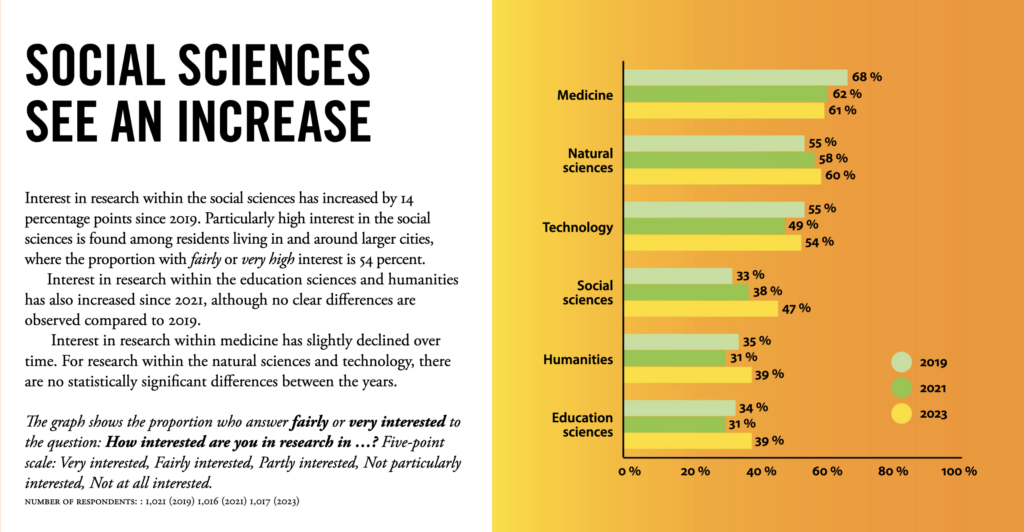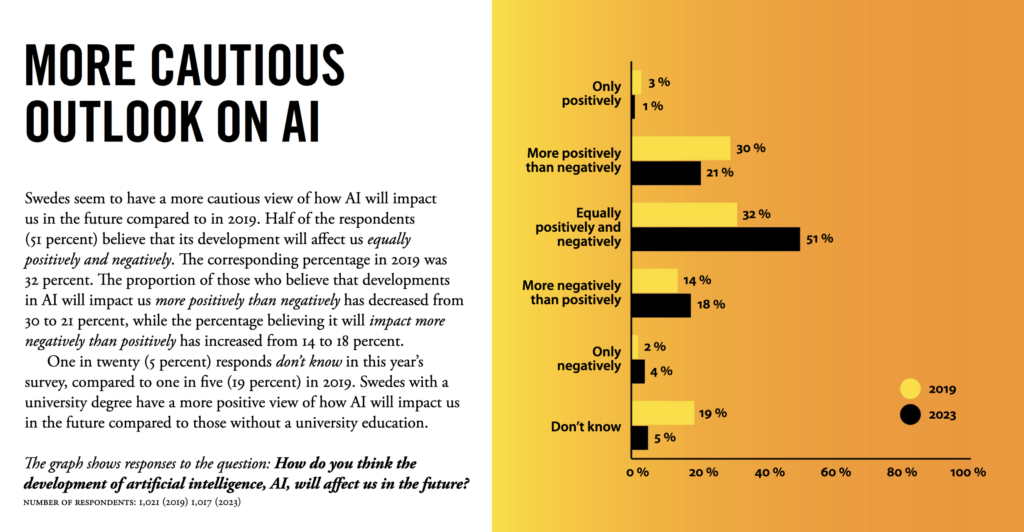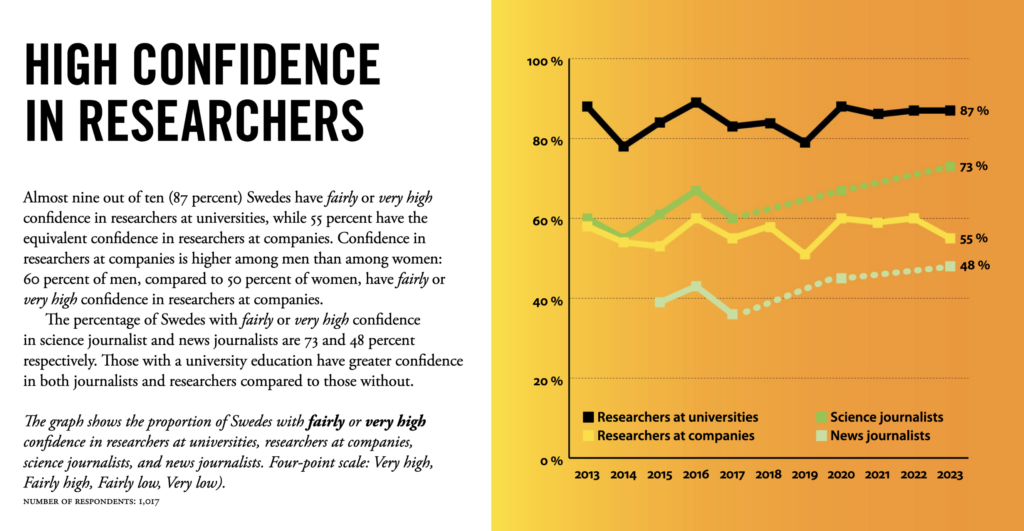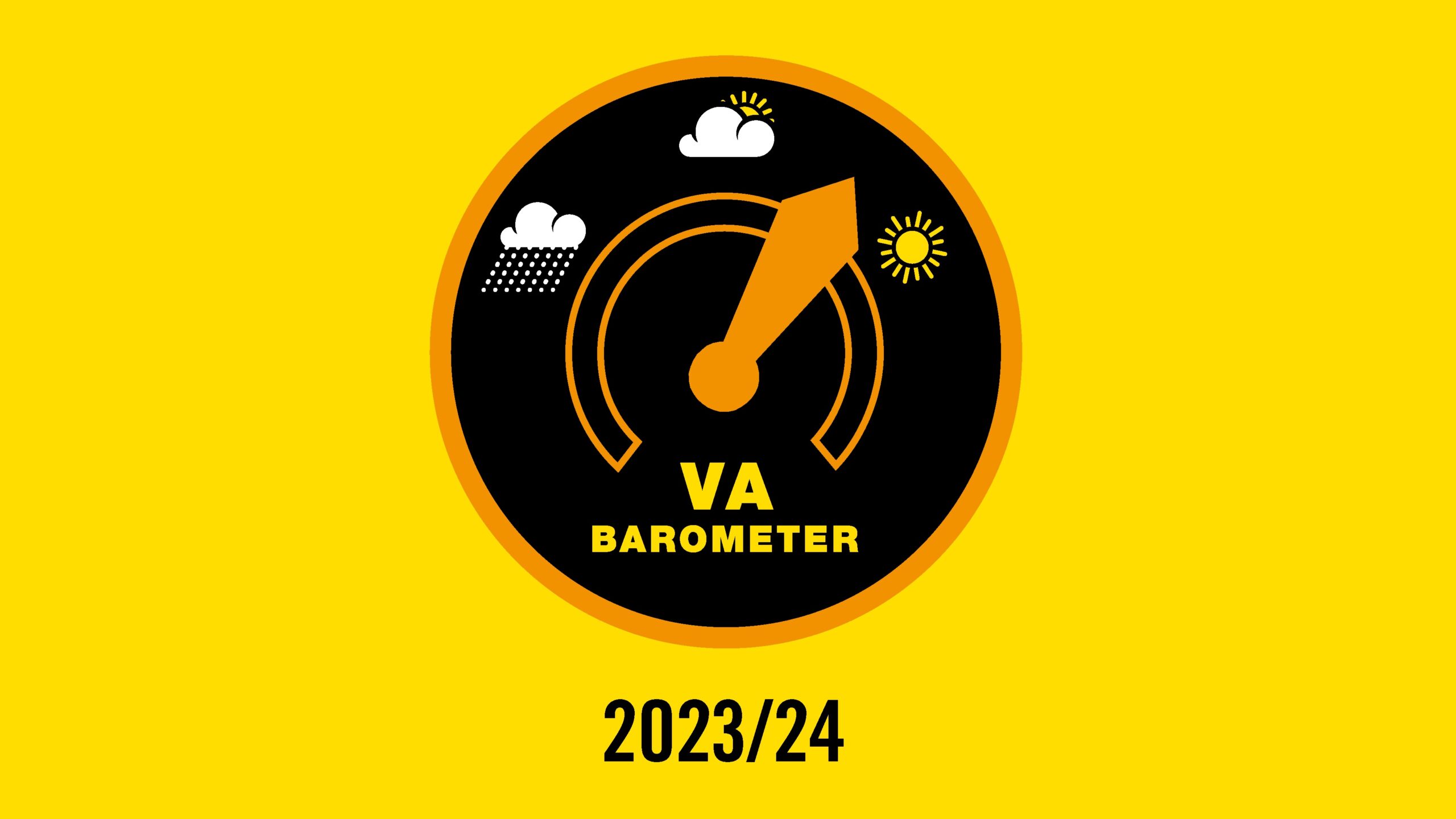The Swedish public’s interest in social sciences research is increasing, and overall, confidence in researchers and research is high. However, the public’s attitude towards artificial intelligence (AI) has become more cautious in recent years. These are some of the results of the 2023/24 VA Barometer, conducted by the Swedish non-profit organisation VA (Public & Science).
Overall, Swedes are most interested in medical research. However, since 2019, the public’s interest in social sciences research has grown considerably more than in other fields. “This is likely due to the fact that many of the issues currently dominating public discourse have their origins in the social sciences,” commented Gustav Bohlin, a researcher at VA (Public & Science).

More Swedish have become negative about AI
One topic that has taken centre stage in both public discourse and the news throughout 2023 is artificial intelligence. As a result, this year’s survey included several questions about the development of AI. Half of the respondents (51 percent) believe that AI will affect us both positively and negatively to an equal extent. Similar proportions of Swedes believe that the impact will be predominantly positive or negative – that AI can both help and harm us in the future (21% believe more positively than negatively and 18% more negatively than positively). When the question was last asked in 2019, a larger proportion of Swedes held positive views about the development of AI, and fewer respondents expressed a negative view.
Swedes who believe that AI predominantly will affect us positively justify their stance by saying that AI will advance research, enhance healthcare, and be helpful in daily life. Conversely, those who believe that AI will affect us negatively raise concerns such as an increased risk of fraud, the potential loss of many jobs, and people not using their brains.
Commenting on the survey findings, Gustav Bohlin observed “The survey suggests that Swedes’ perspectives on AI have become more nuanced in recent years. Previously, there may have been a somewhat naive perception of AI as predominantly positive. Now, we are hearing more critical viewpoints, and a growing number of people have personal experiences with AI, which influences their perception of its development. Notably, there is a significant decrease in the number of respondents answering ”don’t know” compared to 2019. AI is not as unfamiliar as it once was.”

Confidence in researchers remains high
This year’s VA Barometer shows that the Swedish public’s level of confidence in researchers and research remains high and stable. Nine out of ten Swedes (87 percent) have fairly or very high confidence in researchers at universities. The survey also shows that individuals with a university education have greater confidence compared to those without a university education.

“An interesting difference between men and women can also be seen: 60 percent of men, compared to 50 percent of women, have a high level of confidence in researchers at companies. However, when it comes to researchers at universities, women have slightly higher levels of confidence than men,” commented Gustav Bohlin.
The VA Barometer 2023/2024 is based on 1,017 telephone interviews with a random and nationally representative sample of the Swedish population aged 16–74. The interviews were conducted in August-October 2023. It is the 22nd VA Barometer since it was first conducted in 2002.

